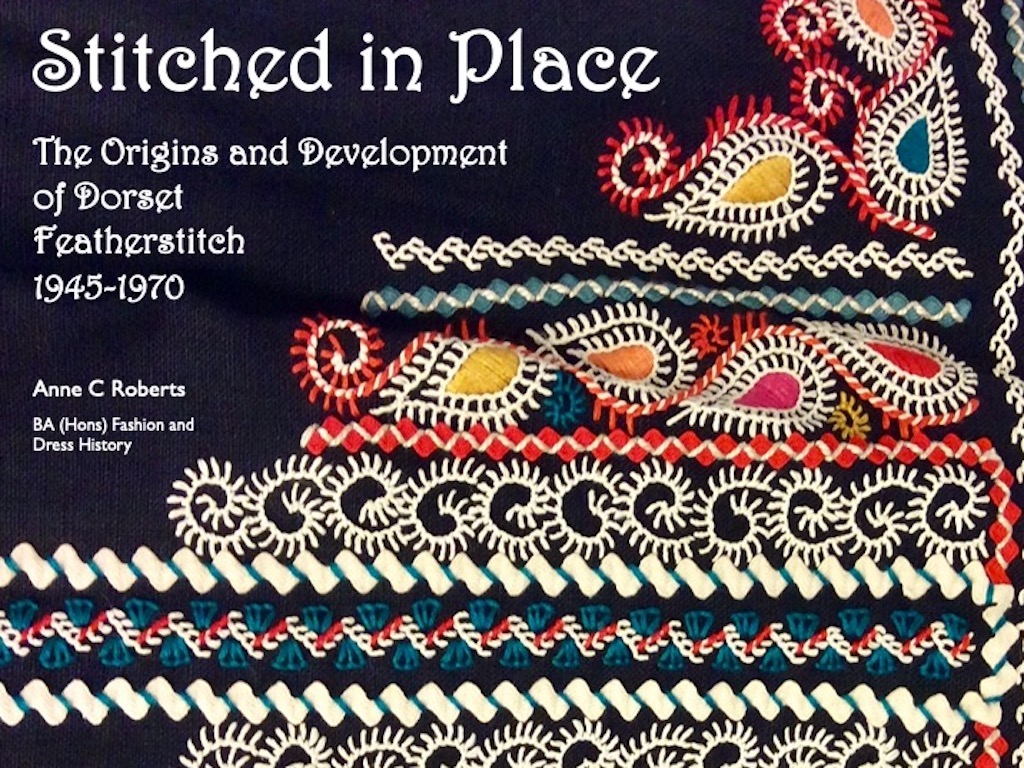
This dissertation was inspired by my own curiosity. Having lived in Dorset for many years I became intrigued by references, within my local community, to something called ‘Dorset Feather Stitch’. My research led me to discover previously unseen examples of this beautiful embroidery and to examine many boxes of related leaflets, photographs and notebooks in Dorset County Museum.
Having studied this unique collection, I then consulted a wide range of primary source material and relevant academic theories to uncover the origins of Dorset Feather Stitchery. To explain how the craft was developed, I investigated the relevance of the Women’s Institute movement, embroidery as a gendered practice and the importance of ‘Dorset’ as an imagined reality.
My thesis argues that Dorset Feather Stitch was not just an enjoyable pastime, but also an expression of subtle feminism. The women who stitched it were inspired by Olive Pass, its originator, to engage in a practice that was defined by social purpose and female values. The dissertation shows how Dorset Feather Stitch was influenced by both the Arts and Crafts movement and the Peasant Art movement. It illustrates how Pass combined her interest in Balkan craftsmanship with traditional English rural craft skills to create a new hybrid style of embroidery. In 1951 the movement was described as a ‘Revival’. This dissertation, however, argues that Dorset Feather Stitch was actually a re-imagined tradition: one which enabled social purpose, promoted craft and celebrated female endeavour.